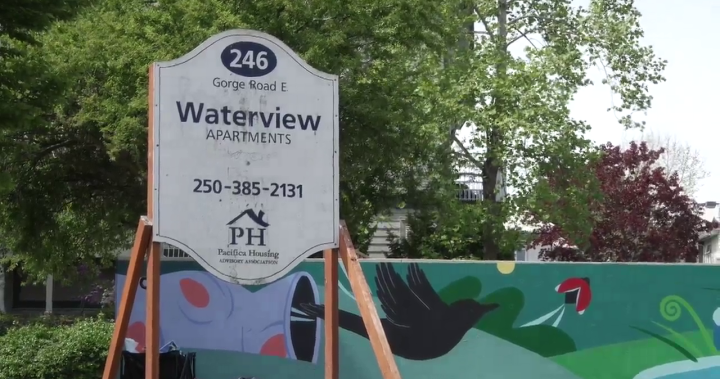As the morning light sliced through the clouds over the Downtown Eastside, support workers at Lookout Housing and Health Society faced yet another day managing crises instead of building community. For years, these frontline staff have navigated a legal labyrinth when trying to address safety concerns in supportive housing—a situation that might finally change.
British Columbia’s Housing Minister Ravi Kahlon announced yesterday that the province is considering significant amendments to the Residential Tenancy Act, potentially creating separate rules for supportive housing facilities. The proposed changes would address growing safety concerns while balancing tenant rights in these specialized environments.
“We can’t keep pretending that supportive housing operates like regular rental buildings,” Kahlon told reporters at the Legislature. “These are homes for our most vulnerable citizens, but they’re also workplaces for staff who deserve protection.”
The announcement follows months of advocacy from housing providers who have highlighted how current tenancy laws can trap dangerous situations in bureaucratic delays. Under existing regulations, evicting a tenant who poses immediate safety risks requires the same process as any rental unit—potentially leaving threatening situations unresolved for weeks or even months.
Shayne Williams, CEO of Lookout Housing and Health Society, has witnessed the challenges firsthand. “Our staff walk into situations daily where they’re trying to support people through mental health crises while simultaneously managing building safety for dozens of other residents,” Williams explained during a community forum last week. “The current legislation simply wasn’t designed for these environments.”
According to BC Housing data, supportive housing providers filed over 1,200 emergency intervention requests last year, with nearly 40% involving situations where staff or residents faced immediate safety concerns. The lengthy resolution process has contributed to burnout among frontline workers, with turnover rates approaching 30% annually in some facilities.
Jeremy Hunka with Union Gospel Mission believes the proposed changes represent an overdue recognition of reality. “Supportive housing isn’t just about providing four walls. These are therapeutic communities where people are working to rebuild their lives,” Hunka said. “When someone repeatedly endangers that community, we need tools to respond quickly while still respecting dignity.”
Not everyone supports the proposed changes. The Tenant Resource & Advisory Centre (TRAC) has expressed concerns that weakening tenancy protections could leave vulnerable residents with fewer rights than other British Columbians.
“We understand the need for safety, but creating separate rules risks further marginalizing people who already face discrimination,” said Amanda Burrows, a TRAC legal advocate. “Many supportive housing residents have experienced trauma from systems that treated them as less deserving of basic protections.”
This tension between safety and rights has defined much of the debate. Housing providers emphasize that 95% of incidents are resolved through de-escalation and support, with eviction viewed as a last resort. However, in situations involving weapons, serious threats, or ongoing violence, the current system’s limitations become evident.
The province appears to be seeking middle ground through amendments that would create expedited review processes specifically for safety-related concerns while maintaining independent oversight. Under the proposal, an independent adjudicator could review urgent safety situations within 48 hours, rather than the weeks or months currently required.
For Sandra, a resident at a Vancouver supportive housing site who asked that her last name be withheld, the conversation hits close to home. “I came here to heal, not to live in fear,” she told me during a community meeting where residents discussed the proposed changes. “I understand people need chances, but what about my right to feel safe in my own home?”
Census data indicates approximately 24,000 British Columbians currently live in some form of supportive housing, from high-barrier facilities serving those with complex needs to transitional programs. These residents typically face multiple barriers including mental health challenges, substance use disorders, or histories of trauma.
The BC Non-Profit Housing Association estimates the sector employs over 5,000 frontline workers who navigate a complex landscape of support services while managing building operations. Their 2023 sector survey found 78% of these workers reported safety concerns had increased over the past five years.
Minister Kahlon emphasized that any changes would involve extensive consultation with both housing providers and tenant advocacy groups. “We’re committed to getting this right,” he said. “That means finding solutions that enhance safety without undermining the trust and stability these homes are meant to provide.”
The province has launched a six-week consultation process to gather feedback before drafting specific amendments. Public forums will be held in Victoria, Vancouver, Prince George, and Kelowna throughout June, with an online feedback portal available for those unable to attend in person.
As the afternoon shadows lengthened across the city, Lookout’s staff continued their daily routines—checking in with residents, mediating conflicts, connecting people with healthcare appointments. For them, these policy discussions represent more than theoretical debates about rights and regulations.
“At the end of the day, we’re talking about people’s lives,” Williams reflected. “Both the lives of those who call these buildings home, and those who come to work each day trying to make a difference. They all deserve better than what the current system provides.”
The province expects to bring forward proposed amendments during the fall legislative session, potentially implementing changes by early 2025 if approved.






